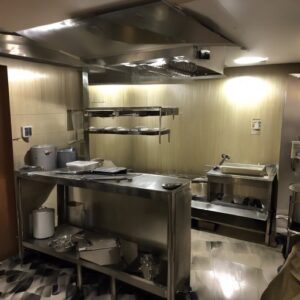In an era where innovation shapes the hospitality industry, hotels constantly seek ways to streamline operations and enhance guest experiences. One remarkable innovation making waves in the sector is the utilization of shipping container lifters. These versatile machines, originally designed for port logistics, are finding new applications within hotels. From enhancing efficiency to promoting sustainability, the benefits are substantial. In this article, we delve into four compelling reasons why hotels are incorporating shipping container lifters into their operations.
Efficient Logistics Management
Efficient logistics management is crucial for hotels to meet guest demands promptly and maintain smooth operations. Shipping container lifters significantly enhance logistics efficiency by simplifying the movement of goods and supplies. Traditional methods of manual handling or forklift operations are often time-consuming and labor-intensive. In contrast, container lifters offer a streamlined solution that saves time and reduces labor costs.
By utilizing container lifters, hotels can expedite the unloading and loading of supplies such as linens, toiletries, and food items. These machines can swiftly transport containers from delivery trucks to storage areas or directly to relevant departments within the hotel. This efficiency not only improves overall productivity but also minimizes the risk of delays in guest services.
Space Optimization
Space optimization is a constant challenge for hotels, especially in urban environments where real estate comes at a premium. Shipping container lifters provide a practical solution by maximizing the utilization of available space. These machines can stack containers vertically, allowing hotels to store supplies or equipment in compact areas without sacrificing accessibility.
By utilizing container lifters, hotels can efficiently manage their inventory while freeing up valuable floor space for other purposes. This flexibility enables hotels to adapt to changing operational needs, whether it involves expanding storage capacity or creating additional amenities for guests. Ultimately, space optimization contributes to a more efficient and profitable hotel operation.
Sustainable Practices
As sustainability becomes increasingly important in the hospitality industry, hotels are seeking eco-friendly solutions to reduce their environmental footprint. Shipping container lifters align with this goal by promoting sustainable practices throughout hotel operations. These machines are often electrically powered, minimizing reliance on fossil fuels and reducing carbon emissions.
Moreover, container lifters facilitate the reuse and repurposing of shipping containers, contributing to waste reduction and recycling efforts. Instead of discarding containers after delivery, hotels can incorporate them into their infrastructure for various purposes, such as storage units or pop-up facilities. This approach not only reduces material waste but also promotes creativity in hotel design and functionality.
Additionally, the efficient logistics enabled by container lifters result in fewer vehicle trips for supply deliveries, further reducing the hotel’s carbon footprint. By adopting sustainable practices facilitated by shipping container lifters, hotels can enhance their reputation as environmentally responsible establishments while reducing operational costs in the long run.
Enhanced Guest Experience
The ultimate goal of any hotel is to provide an exceptional guest experience. Shipping container lifters indirectly contribute to this objective by improving operational efficiency and resource management. By streamlining logistics and optimizing space, hotels can ensure that guests receive prompt and reliable service without disruptions or delays.
Furthermore, the sustainability initiatives supported by container lifters resonate with environmentally conscious guests who prioritize eco-friendly accommodation options. Hotels that embrace sustainable practices demonstrate a commitment to environmental stewardship, which can enhance their appeal to a growing segment of socially responsible travelers.
Moreover, the efficient utilization of space made possible by container lifters allows hotels to create innovative guest amenities or recreational areas, enhancing the overall guest experience. Whether it’s a rooftop garden, a fitness center, or a cozy lounge, the possibilities are endless when space is effectively managed.
Conclusion
In conclusion, a shipping container lifter offer a multitude of benefits for hotels seeking to optimize their operations and elevate guest experiences. From efficient logistics management to space optimization and sustainable practices, these versatile machines are revolutionizing the way hotels operate. By embracing container lifters, hotels can enhance efficiency, reduce costs, and demonstrate their commitment to sustainability—all while delivering exceptional service to guests. As the hospitality industry continues to evolve, innovative solutions like shipping container lifters will undoubtedly play a pivotal role in shaping its future.



